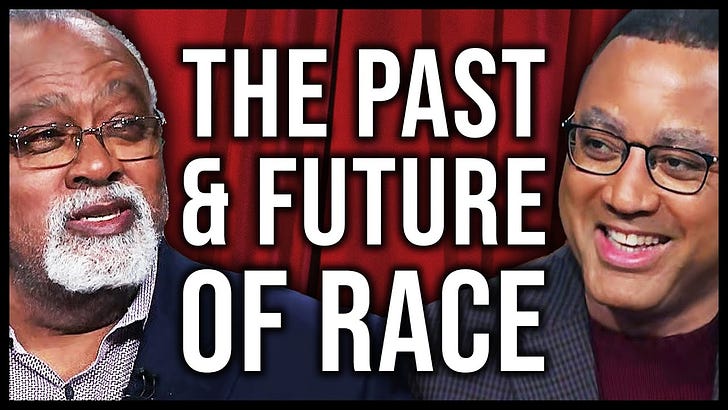This week on The Glenn Show, John McWhorter and I are joined by the journalist Matt Taibbi. Many of you are likely familiar with Matt from his many books, his political journalism for Rolling Stone (among other outlets), his Useful Idiots podcast, and now his outstanding Substack newsletter, TK News. Matt lived and worked in Russia and the former USSR for several years, so I thought he’d be an excellent source for some insight into the war in Ukraine.
We begin by discussing Matt’s brief career playing in the MBA—that’s the Mongolian Basketball Association. We then move on to more pressing matters. Like many journalists and experts, Matt had been confident that Putin would not invade Ukraine. Unlike many journalists and experts, he issued an apology to his readers for making the wrong call and explained what led him to make it. Even after the invasion, it’s not clear why Putin is pushing as far west as he is—we talk about the difficult of getting inside his head. I ask if the media’s portrayal of Putin as a true autocrat is accurate, and Matt affirms that, while it’s hard to know what’s really going on inside the Russian government, Putin does seem to have more or less total control of domestic and military policy. The best way to deal with Russia is to first understand how it sees the world, so how do we put ourselves in its geopolitical shoes? This exercise leads John to reflect on his own lack of tribalistic feelings, and how tribalism is driving Russian and Ukrainian responses to the war. Shouldn’t all this feel a little familiar to Americans? Can we apply the lessons we learned (or should have learned) in our own disastrous wars in Afghanistan and Iraq to Ukraine? Matt was an early and vociferous critic of Russiagate, the discredited idea that Russian interference swung the 2016 election in Trump’s favor. But has the hangover from Russiagate made it difficult to view Russia’s actions clearly? And why have those who were wrong about Russiagate (and many, many other things) continued to exert influence in the media despite never admitting to the kind of errors that would have ended careers not so long ago? Matt argues that journalism is no longer about reporting news but about building narratives, and that media outlets are now rewarded primarily for keeping their viewers angry. We then move on to cultural matters. I’m a great fan of classic Russian literature, and I ask Matt to recommend some modern Russian writers. And finally, the big question: Who’s going to triumph in the NBA Eastern Conference, the Celtics or the Nets?
Many thanks to Matt Taibbi for dropping in. Hopefully we’ll be able to get him back on TGS in the not-too-distant future.
This post is free and available to the public. To receive early access to TGS episodes, an ad-free podcast feed, Q&As, and other exclusive content and benefits, click below.
0:00 Matt’s brief career as a professional basketball player in Mongolia
5:45 What drove Putin to invade Ukraine?
14:54 Are there limits to Putin’s power in Russia?
19:33 Putting ourselves in Russia’s geopolitical shoes
27:35 The appeal of Russian nationalism
30:55 Did we learn anything from Iraq and Afghanistan?
36:25 Did Russiagate obscure Americans’ ability to see Russia’s actions clearly?
40:08 The value of public apologies
41:28 Matt: Journalists are now in the narrative business
49:45 The foreign policy language barrier
55:00 Matt’s recommends some modern Russian writers
58:18 Matt answers the most pressing question of our time: Celtics or Nets?
Links and Readings
Katie Halper and Matt’s podcast, Useful Idiots
Matt’s mea culpa on the Russian invasion of Ukraine
Wesley Lowery’s NYT piece, “A Reckoning Over Objectivity, Led by Black Journalists”















Matt Taibbi and John McWhorter – What Is Putin Thinking?